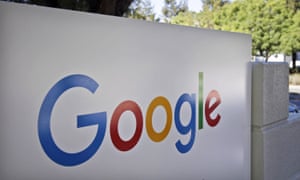
According to the article, marketers will be spending more time advertising online than on television. This is a break through for the advertising industry, which would solely focus on selling adverts to print media and television. Online marketing has deemed to be much more efficient than conventional methods, with the biggest advertiser of all P&G leading the way to online advertising. However there have been some criticisms, notably from P&G’s chief brand officer Pritchard. Pritchard argues the age of online advertising had brought an “exponential increase in crap”. The overload of advertisements on social media sites and also generally online have resulted in consumers to resorting to ad blockers. Mr Pritchard also highlighted how it is not clear if consumers are seeing the online ads they don’t block. Another issue which is facing the new age of online advertising is the increase in bots, the buying and selling of adverts in some cases are now being run by software that delivers hyper-targeted ads across multiple platforms, supposedly to make every ad dollar count more. Pritchard also criticised Facebook and Google, who have taken in large amounts of revenue due to ads while failing to get serious about measuring the effectiveness of ads that run on their platforms. The article concludes through foreshadowing the future of advertising, and the possibility of dependence on the exploitation of advertisers by Facebook coming to an end.
- A survey conducted by the Interactive Advertising Bureau (IAB) found that over 70 per cent of marketing executives expressed dissatisfaction with the state of digital marketing.
- The Association of National Advertisers found that up to 37 per cent of online impressions are made by bots (fake consumers)

This article discusses the accusations facing Google of spreading fake news, due to the search engine sharing falsehoods and conspiracy theories through its “featured snippets in search” function. Although a practical feature, the function pulls information from sites sharing fake news, propaganda and simple lies. An example of this is the Google engine responding to searches such as “is Obama planning a coup” where a quick answer from a site called Secrets of the Fed “According to details exposed in Western Centre for Journalism’s exclusive video, not only could Obama be in bed with the communist Chinese, but Obama may in fact be planning a communist coup d’état at the end of his term in 2016!” This form of fake news is a threat to the public, as one could easily come across this news which ultimately seems believable. Googles response to these criticism emphasises on their aim to provide an automatic and algorithmic match to a given search query "which in some instances features a site with inappropriate or misleading content. When we are alerted to a Featured Snippet that violates our policies, we work quickly to remove them".
I believe that Google should do more to tackle the issue of fake news as it is the largest search engine with the most users, however I believe the issue of fake news and users coming across it will always be in some form inevitable, as search engines are based on algorithmic systems which will ultimately pull up some form of fake news. I think more should be done to destroy the issue of fake news rather than hide it.
No comments:
Post a Comment